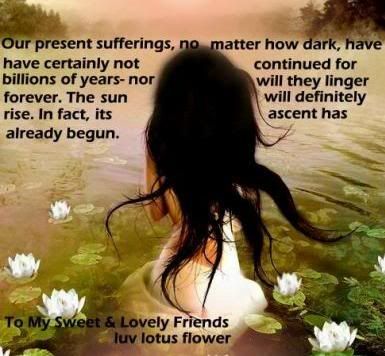by Eddy Canfor-Dumas
1990 was a bad year for divorce in Britain.
Or rather, it was a good year for divorce, but not such a good year for
marriage. 153,386 of them broke down ‘irretrievably’, the sole grounds
for divorce in English law. Currently, that figure (the most up-to-date
available) represents forty-six per cent – almost a half – of all new
marriages in England and Wales (331,150).
It’s a sobering
thought. Yet for many people the sorry wreckage of so many marriages in
our society has not proved a deterrent to splicing the knot. In love,
it seems, hope truly does spring eternal.
To many others,
though, the number of failed marriages they can see has put them off
the idea of matrimony, but not, it seems, the idea of living together
in a marriage-type relationship. Even here, though, there is no
guarantee that such a relationship is any more likely to succeed than a
‘formal’ marriage. In fact, if the number of marriage-type
relationships that broke down could be counted, the overall proportion
of ‘divorces’ to enduring relationships might be even higher.
And
this is just counting heterosexual relationships. Add in the number of
homosexual partnerships that fail and one might wonder how it is that
any two people ever manage to stay together and build a successful
relationship through their lives.
There have been many reasons
put forward as to why so many relationships fail today – amongst
others, the decline of the influence of the Church, the advent of the
Pill, the growing financial-independence of women and a rise of
intolerance generally between people. But whatever the reasons, two
conclusions at least can be drawn from the present state of affairs.
First,
our judgement as to who would make a good partner is not, on present
statistics, all that reliable. And second, even if we do manage to meet
and marry (or live with) Mr or Miss Right, our ability to sustain and
develop that relationship is frequently tested to breaking point.
Given
that, for many people, an enduring and emotionally satisfying (and
almost certainly monogamous) relationship with another person is a goal
most devoutly to be wished, what does Nichiren Daishonin’s Buddhism
have to offer on these two fundamental problems. – finding the right
partner and then working at the relationship so it grows and
flourishes, ‘till death do us part’?
Happiness
Before
answering those questions, it is important to understand that, for
those practising Nichiren Daishonin’s teachings, the most fundamental
relationship he or she can have is with the Gohonzon, not with another
person. This is because the purpose of Buddhist practice is to
establish absolute and unshakeable happiness within one’s own life, and
to teach others how to do the same. Essentially this is achieved
through chanting Nam myoho renge kyo to the Gohonzon. As Nichiren
Daishonin states:
A woman who devotes herself to the Gohonzon
invites happiness in this life; and in the next, the Gohonzon will be
with her and protect her always (Major Writings, Vol.1, p.213).
He is even more direct in the Gosho Happiness in this World:
There
is no greater happiness for human beings than chanting Nam myoho renge
kyo… There is no greater happiness than having faith in the Lotus Sutra
[Gohonzon] (Major Writings, Vol.1, p.161).
This is a difficult
lesson to learn, however, living as we do in a society which places
romantic love alongside wealth, fame and beauty as perhaps the most
desirable of all goals. One might actually say that the real struggle
in practising Nichiren Daishonin’s Buddhism lies in truly accepting the
reality that happiness lies within your own life; in developing and
revealing your Buddha nature more and more; in discovering your own
unique mission in this world; and should not rely on external – and
ultimately unreliable – factors like your relationship with your lover
or spouse.
In fact, Buddhism has traditionally viewed romantic
love with ambivalence, if not downright negativity. This is because
desire – including romantic desire – is intimately and inevitably bound
up with suffering. . (see ‘Basics of Buddhism, pp31-2) Only the
altruistic ‘love’ for others – comparable to the compassionate love of
parents for their children – is seen in a positive light. This love –
called jihi in Buddhism – is best exemplified in traditional Buddhist
teachings by the merciful actions of Shakyamuni Buddha, based on his
desire to remove suffering and five happiness to all living beings.
All
very well, you might think, but what has this got to do with the real
world, where we often find it difficult to get on with our nearest and
dearest, let alone feel any stirrings of compassion for ‘all living
beings’? Where we fancy each other, fall in love, have affairs and
one-night stands? Where we fight and scream, then kiss and make up – or
break up?
The answer touches on the basic difference between
the ‘traditional’ Buddhism associated with Shakyamuni and the Buddhism
of Nichiren Daishonin. Whereas traditional Buddhist teachings stress
the necessity of trying to eliminate desire to avoid suffering,
Nichiren Daishonin teaches that desire is an unavoidable and
fundamental aspect of human life. Quite simply, if we had no desires we
would never do anything. Even to live, for example, we have to want to
go on living.
So instead of suppressing our earthly desires,
Nichiren Daishonin taught that through chanting for them we can attain
enlightened happiness. As he states:
When one chants Nam myoho
renge kyo even during the sexual union of man and woman, then earthly
desires are enlightenment and the sufferings of life and death are
nirvana (Major Writings, Vol 2, p.229).
In short, what this
means in the context of relationships is that, through chanting Nam
myoho renge kyo to find the right partner or to improve our
relationship with our existing partner, we reveal our Buddhahood. And
it is this process of revealing and strengthening our Buddhahood, with
its characteristic qualities of wisdom, courage, compassion and life
force, which puts us on the right path towards a happy and fulfilling
relationship; a relationship based on mutual respect and a deep
spiritual bond, and one in which we share the same dreams, goals and
aspirations as our partner. So how does this work in practice?
Why a relationship?
A
good starting-point in answering this question might be to ask why one
wants ‘a relationship’ – put in apostrophes, thus, because often we
seem to regard this intimate connection with another human being almost
as a commodity; a ‘thing’ to be desired and possessed and then, as with
a car whose performance doesn’t quite match our expectations, discarded
or exchanged for another. (Perhaps we should add the dominance of the
values of materialism to the list of why so many relationships fail
these days.)
Of course, there are many reasons why one should
want a close relationship with another person: for company; for sex;
for a family; for status; security, money; to be ‘grown-up’ or to
escape from one’s family; for vanity – the kudos of ‘catching’ someone
generally admired or desired; or the impulse to mother or lord it over
another person. And then there’s the intoxicating rapture of simply
falling head over heels in love – the true ‘magic’ of romantic love,
where reason flies out of the window and we are borne along on a tide
of passion.
More prosaically, though, our motives are usually
mixed together into a vague, generalized longing for ‘a relationship’,
which often seems to proceed meeting anyone ‘special’. Rather, we
simply look for someone to fit the template of the ideal partner we
have constructed in our minds.
One thing these motives have in
common, however, is that they are directed outwards. They are based on
the assumption that the other person will make us happy by filling some
kind of void in our lives. This, Buddhism teaches, is a mistake.
A
relationship with another person might provide many of the things
listed above – stimulating companionship, a fulfilling sexual
relationship and a happy, healthy family life are among the basic joys
of human existence. But to base one’s happiness on it is to fail to
recognize the essential instability of the situation. A lifelong
companion, however wonderful, will eventually die. Even the best sexual
relationship can suffer if other factors alter. And as one’s children
grow and mature, their attitude towards their parents can often change
for the worse.
So one of the main purposes of chanting about
our attitude to relationships is to understand what lies at its root.
Is it fear of loneliness? The desire to be loved because, in our heart
of hearts, we are so unsure of our true worth? Or simply a restless
sexual energy?
Why him? Why her?
In fact, as we chant and
study the life-philosophy of Nichiren Daishonin, we can go even deeper
into ourselves and begin to see and understand the pattern of our
attraction to certain people. For, as Nichiren Daishonin teaches, two
people who have chosen to live in a close relationship fit each other
perfectly, in all their strengths and weaknesses. Describing the
relationship of husband and wife in thirteenth century Japan, he says:
When
a husband is happy, his wife will be fulfilled. If a husband is a
thief, his wife will become one, too. This is not a matter of this life
alone. A man and wife are as close as a body and shadow, flowers and
fruit, or roots and leaves, in every existence of life (Major writings,
Vol.1, p.146).
This observation is based on the Buddhist
principle of the Ten Worlds. Buddhism teaches that all people share ten
basic life conditions – Hell, Hunger, Animality, Anger, Tranquility,
Rapture, Learning, Realization, Bodhisattva and Buddhahood, all of
which have certain characteristics.
Hell is the world of
suffering; Hunger is the world of insatiable desire; Animality is the
world of the instinct. Anger is dominated by the ego, Tranquility
(Humanity) by calmness, Rapture by momentary pleasure, Learning is
characterized by the desire to learn from the teachings of others,
Realization by the desire to improve oneself through one’s own efforts,
and Bodhisattva by the exercise of compassion. Buddhahood, which is
revealed through chanting Nam myoho renge kyo, acts as a kind of
positive filter which brings out all of the beneficial, value-creating
aspects of the other nine worlds.
Everyone tends to live
predominantly in one or two of these life conditions, which, although
they are displayed according to the personality of each individual,
retain their basic characteristics. Thus, one person might be brash and
boastful and another quietly superior, but both are exhibiting aspects
of the world of Anger, the ego.
The important thing about
this, as far as relationships go, is that we tend to be attracted to
those people who share the same basic life condition as ourselves.
A
person in the grip of Animality, for instance, will take every
opportunity to indulge in instinctive pleasures – sex, food, drink,
sleep – usually with little thought for the consequences of his
actions. He will tend to be attracted to someone who is also in the
grip of Animality, even though the object of his attentions might not
exhibit all the same aspects of the life condition. For instance, both
might share an appetite for sex and alcohol, but one might consistently
defer to the wishes of the other in all other matters – as Nichiren
Daishonin says of Animality, ‘It is the nature of beasts to threaten
the weak and fear the strong’ (Major Writings, Vol.1, p.34).
Exactly
how the Ten Worlds operate in individuals can be extremely subtle, and
there is no space here to analyse all their various nuances. And they
are by no means all bad. Each of the Ten Worlds has both negative and
positive aspects (except Buddhahood, which is wholly positive), so if
we are fortunate enough to be dominated by, say, the positive aspects
of the world of Tranquility (or Humanity) – clear, reasoned judgement –
our chances of forging a successful relationship will be much higher
than if we are in the clutches of Hell, whether or not we chant Nam
myoho renge kyo.
Even so, as we chant about our present and
past relationships, we begin to identify which of the Ten Worlds have
been dominant in them. Almost invariably, we see that we have been
attracted to the same type of person, ‘chosen’ by our own dominant life
state.
This pattern Buddhism calls our ‘karma’, habitual
behaviour which we are bound to repeat. Take the couple described
above. If the man begins to despise his partner’s weakness and
continual deference – one of the very things that attracts him in the
first place – he might eventually end the relationship. Being dominated
by Animality, however, he is only attracted to those who share
characteristics similar to the person he has just left. They might
appear in a different form –this time, for instance, he might play the
subservient role – but essentially he will find himself in the same
kind of relationship.
Breaking the pattern.
It is to break
out of the pattern imposed on us by our karma that we chant. As we do
so and reflect on our actions, we begin to see our motives more
clearly. And after a time (it varies from person to person), if we
conclude that our attitude is based on the negative aspects of one of
the Ten Worlds – especially the ‘lower worlds’ of Hell, Hunger,
Animality, Anger, Tranquility or Rapture – we determine to challenge
and change it, for the happiness of both ourselves and our partner
(present or future).
At the same time we struggle to base our
relationships increasingly on the world of Buddhahood, with its deep
respect for the inherent dignity of life and for the fundamental
equality of all people. For ultimately, Buddhism teaches, it is a
relationship based on shared goals, respect and equality that stands
more chance of enduring and growing than one based on passion, romance
or unrealistic expectations of our partner’s ability to make us happy.
As Nichiren Daishonin states:
Explain all this to your wife, and
work together like the sun and the moon, a pair of eyes, or the two
winds of a bird. With the sun and the moon, how can you fall into the
path of darkness? With a pair of eyes, how can you fail to behold the
faces of Shakyamuni, Taho and all the other Buddhas of the universe?
With a pair of wings, you will surely be able to fly in an instant to
the Buddha land of eternal happiness (Major Writings, Vol.2, p.231).
What
does this mean in practical terms? First, if we are not involved with
anyone at present but wish to be, it means making a strong
determination to meet the right person for our happiness – which also
means the right person for kosen-rufu – and then, effectively,
forgetting about it. Lodged deep in our lives, the desire to meet the
right person, coupled with a strong daily practice, will eventually
draw that person to us when the time is right.
In the meantime,
instead of being obsessed with having ‘a relationship’ and feeling
sorry for ourselves that we are alone, we can concentrate on creating
value in our society and growing as strong and independent individuals
– who are, anyway, generally more attractive to others than those who
are always desperately seeking someone.
‘The right partner for
kosen-rufu’ does not mean, however, that there will only ever be one
person ‘out there’ with whom we can possibly build a happy
relationship, whom we somehow hunt out with our chanting; neither does
it mean that he or she should necessarily be a Buddhist.
There
may, in fact, be more than one person with whom we forge successful,
creative relationships on the path of our human revolution towards
finding our partner for life. They may or may not be Buddhists
(although this would be hard with someone vehemently and consistently
opposed to our practice). And even if our partner never chants, if we
do our utmost to respect and support him or her in the fulfillment of
his or her unique purpose in this life, he or she will respect and
support us in turn, and help us fulfil our unique purpose, too.
In
this context, chanting is a means of developing sufficient good
fortune, through our thoughts, words and deeds based on Buddhahood, to
be in the right position to meet the right person at the right time.
Chanting also helps us develop enough wisdom to recognize the potential
that exists in that other person (and any existing relationship we
might have), and then to decide whether to act or not.
So,
secondly, once we meet someone to whom we are attracted, we should
chant seriously before we become romantically (or sexually) involved
with him or her. We need the wisdom (and courage) of our Buddhahood to
look clearly and honestly at the nature of our attraction. And if our
wisdom counsels against involvement, we must listen to it – or face the
inevitable consequences. Our karma to be drawn to a certain type of
person may be very strong, but if we have suffered from it in the past,
it is only by not succumbing to it now that we can hope to change our
pattern of unhappy relationships.
Sex and ‘the learning curve’
But
isn’t all this chanting before falling into someone’s arms (or bed)
just frankly unrealistic? What about passion? Excitement? Romance? Does
Buddhism really advocate sex only within the bounds of marriage or a
life-long commitment? If we don’t become involved in the first place,
how can we ever know whether or not we want to commit ourselves to this
other person? And surely people learn from experience and even ‘failed’
relationships can teach us something?
These are all good questions. In addressing them, it might be useful to bear a couple of points in mind.
First,
attitudes to relationships, particularly sexual relationships, vary
according to the age and the culture of any society. Broadly speaking,
in this country, we have alternated between eras of sexual repression
and sexual permissiveness, often running the two in parallel –
historically (and hypocritically), for example, there have been
different standards of sexual behavior for men and women. Currently, we
are going through a stage of sexual permissiveness, where many people
feel that it is perfectly natural – indeed, even healthy – to have a
number of different sexual partners before settling down with ‘the
chosen one’, supposedly for life.
The important question –
certainly in terms of Nichiren Daishonin’s Buddhism – is not one of
morality but pragmatism. Quite simply, have our current fashions led to
greater happiness? To longer, stronger relationships? The answer can
hardly be an unqualified ‘yes’.
Take ‘trial marriages’ – living
together before deciding to make a legal commitment. A recent study by
the Office of Population Censuses and Surveys came to the startling
conclusion that, of couples who married for the first time in the early
1980’s, those who had previously lived together were fifty per cent
more likely to have divorced after five years of marriage – and sixty
per cent more likely to have divorced after eight years of marriage –
than similar couples who had not lived together.
(Photos by deviantart,photobucket)

















